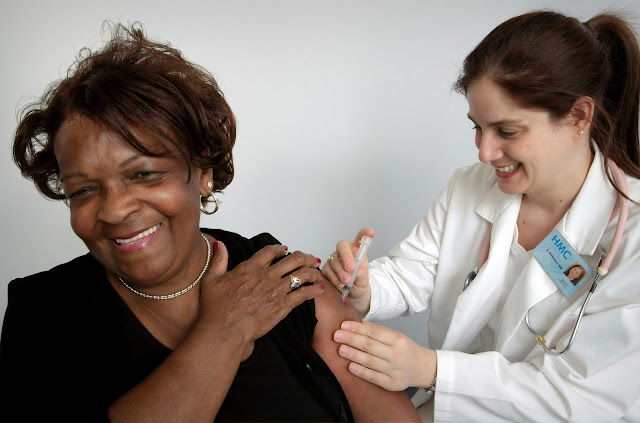Nurturing Health through Preventive Checkups
Nurturing Health through Preventive Checkups: A Comprehensive Guide to Proactive Well-being
Introduction:
In today's fast-paced world, where hectic schedules and demanding lifestyles often take precedence, maintaining good health can sometimes become a neglected aspect of life. However, as the age-old adage goes, "health is wealth," and indeed, prioritizing one's well-being is paramount for a fulfilling and productive life. While many individuals may focus primarily on seeking medical attention when symptoms of illness manifest, there exists a proactive approach to health maintenance that is equally, if not more, important – preventive healthcare. At the forefront of preventive healthcare lie regular checkups, which serve as invaluable tools in detecting potential health issues early and implementing timely interventions. In this comprehensive guide, we will delve into the significance of preventive checkups, explore their key components, elucidate the myriad benefits they offer, and provide practical insights into incorporating them into one's lifestyle for optimal health and well-being.
The Significance of Preventive Checkups:Preventive checkups represent a cornerstone of proactive healthcare, offering a proactive strategy to monitor and maintain health before the onset of significant health issues. Unlike reactive healthcare, which primarily focuses on treating illnesses after they have already developed, preventive checkups aim to identify potential problems at their nascent stages, allowing for timely intervention and preventive measures. By undergoing regular checkups, individuals can benefit from early detection of health issues, thereby minimizing the risk of disease progression and associated complications.
Key Components of Preventive Checkups:
Comprehensive Health Assessment:
Preventive checkups typically commence with a comprehensive health assessment conducted by a healthcare provider. This assessment encompasses a thorough evaluation of an individual's overall health status, including measurements of vital signs such as blood pressure, heart rate, and body mass index (BMI). Additionally, healthcare providers may inquire about lifestyle habits, family medical history, and any concerning symptoms that the individual may be experiencing. This holistic evaluation serves as a foundational step in identifying potential risk factors and tailoring subsequent preventive measures accordingly.
Screening Tests:
Central to preventive checkups are various screening tests designed to detect early signs of diseases or abnormalities. These tests may encompass a wide array of parameters, ranging from blood tests to assess cholesterol levels, blood sugar levels, and organ function, to screenings for conditions such as cancer, diabetes, and cardiovascular diseases. The selection of screening tests may vary based on individual factors such as age, gender, and preexisting health conditions, with healthcare providers leveraging evidence-based guidelines to tailor recommendations to each individual's unique needs.
Immunizations and Vaccinations:
In addition to assessments and screenings, preventive checkups provide an opportune platform for discussions regarding immunizations and vaccinations. Vaccines play a pivotal role in preventing infectious diseases and their potentially severe complications, making adherence to recommended immunization schedules imperative. Healthcare providers may offer guidance on updates to immunization schedules based on individual risk factors, age, and immunization history, thereby ensuring comprehensive protection against vaccine-preventable diseases.
Health Counseling and Education:
Beyond the realm of physical examinations and diagnostic tests, preventive checkups offer invaluable opportunities for health counseling and education. Healthcare providers may engage individuals in discussions regarding lifestyle modifications aimed at promoting overall well-being, encompassing topics such as dietary habits, physical activity, stress management, smoking cessation, and injury prevention strategies. By empowering individuals with knowledge and practical strategies for health promotion, preventive checkups pave the way for sustained improvements in health outcomes and quality of life.
Benefits of Preventive Checkups:
Early Detection of Health Issues:
Arguably the most significant benefit of preventive checkups lies in their ability to facilitate the early detection of health issues. By identifying potential problems at their incipient stages, healthcare providers can implement timely interventions, thereby mitigating the risk of disease progression and associated complications. Whether it be the early detection of hypertension, diabetes, or cancer, preventive checkups offer a crucial window of opportunity for proactive management and improved health outcomes.
Cost Savings:
In addition to promoting early detection and intervention, preventive checkups can yield substantial cost savings in the long run. By averting the need for expensive treatments associated with advanced-stage diseases, such as surgeries, hospitalizations, and long-term medications, preventive healthcare interventions prove to be not only clinically beneficial but also economically prudent. From a societal perspective, investing in preventive healthcare initiatives can alleviate the burden on healthcare systems, thereby fostering greater sustainability and equity in healthcare delivery.
Improved Health Outcomes:
Regular participation in preventive checkups has been shown to correlate with improved health outcomes across diverse populations. Whether through the early detection of chronic conditions, optimization of preventive interventions, or cultivation of health-promoting behaviors, preventive checkups play a pivotal role in enhancing overall health and well-being. By prioritizing preventive healthcare, individuals can proactively safeguard their health and minimize the likelihood of experiencing debilitating health complications in the future.
Empowerment and Awareness:
Participating in preventive checkups empowers individuals to take an active role in managing their health and well-being. Through meaningful interactions with healthcare providers, individuals gain valuable insights into their health status, risk factors, and personalized preventive strategies. Moreover, preventive checkups serve as catalysts for health awareness and education, fostering a culture of proactive health-seeking behavior within communities. By equipping individuals with the knowledge and resources necessary to make informed decisions about their health, preventive checkups lay the foundation for a lifetime of empowered self-care and resilience.
Conclusion:
In conclusion, preventive checkups represent a cornerstone of proactive healthcare, offering a multifaceted approach to health maintenance and disease prevention. By incorporating regular checkups into one's healthcare routine, individuals can benefit from early detection of health issues, cost savings, improved health outcomes, and enhanced empowerment and awareness. From comprehensive health assessments to tailored screenings, immunizations, and health counseling, preventive checkups encompass a spectrum of interventions aimed at promoting holistic well-being. As we navigate the complexities of modern living, let us not overlook the importance of preventive healthcare in nurturing health and vitality for ourselves and future generations. By embracing a proactive approach to health, we pave the way for a healthier, happier, and more resilient society.



Comments
Post a Comment